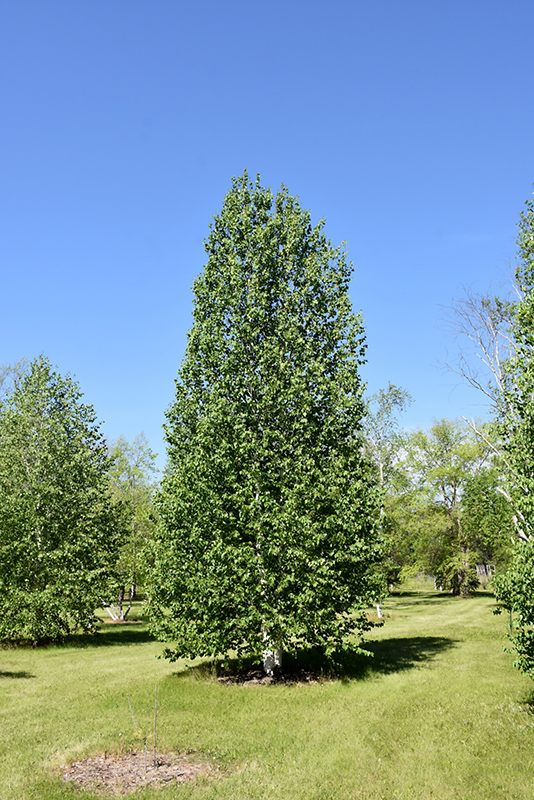Emerald Flare® Tianshan Birch
Betula tianshanica 'EmerDak'
Height: 30 feet
Spread: 12 feet
Sunlight:
![]()
![]()
Hardiness Zone: 4a
Description:
A distinctive birch tree selection that grows in a narrow, pyramidal form; cold hardy and tolerant of drought and higher pH soils; attractive white exfoliating bark, and bright golden-yellow fall color; a preferred variety for home landscape use
Autumn Enthusiasm
Fall is for planting! Did you know that fall is the best time to plant your deciduous trees and shrubs? Be the envy of all your neighbors with striking shades of reds, oranges, and purples. Plant something breathtaking today!
Ornamental Features
Emerald Flare® Tianshan Birch has dark green deciduous foliage on a tree with a pyramidal habit of growth. The pointy leaves turn outstanding shades of yellow and in the fall. The smooth white bark is extremely showy and adds significant winter interest.
Landscape Attributes
Emerald Flare® Tianshan Birch is a deciduous tree with a distinctive and refined pyramidal form. Its relatively fine texture sets it apart from other landscape plants with less refined foliage.
This is a relatively low maintenance tree, and should only be pruned in summer after the leaves have fully developed, as it may 'bleed' sap if pruned in late winter or early spring. Deer don't particularly care for this plant and will usually leave it alone in favor of tastier treats. Gardeners should be aware of the following characteristic(s) that may warrant special consideration;
- Insects
Emerald Flare® Tianshan Birch is recommended for the following landscape applications;
- Accent
- Shade
- Vertical Accent
Planting & Growing
Emerald Flare® Tianshan Birch will grow to be about 30 feet tall at maturity, with a spread of 12 feet. It has a low canopy with a typical clearance of 3 feet from the ground, and should not be planted underneath power lines. It grows at a medium rate, and under ideal conditions can be expected to live for 40 years or more.
This tree does best in full sun to partial shade. It prefers to grow in average to moist conditions, and shouldn't be allowed to dry out. It is not particular as to soil type or pH. It is highly tolerant of urban pollution and will even thrive in inner city environments. Consider applying a thick mulch around the root zone in winter to protect it in exposed locations or colder microclimates. This is a selected variety of a species not originally from North America.


